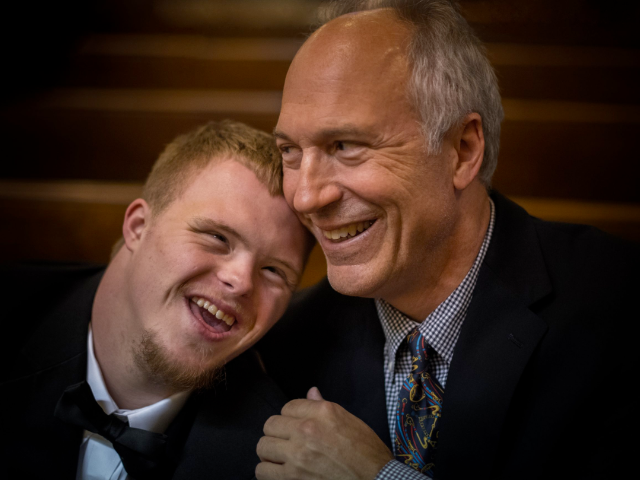Whenever the topic of transition is discussed, it is mostly about the issues surrounding young adults with developmental and/or intellectual disabilities. Usually, there is very little said about the transition experience for parents. As a sibling of a brother with a developmental disability, I wanted to share my experiences and insights on the topic of how to plan for the transition as a caregiver.
A great read about disability transition!
I found a fantastic article written by two occupational therapists and authors, Varleisha Gibbs and Adele Breen-Franklin. I think it will be very useful for me to summarize this article, discuss the role of occupational therapy (OT) in this area, and steps to take to redefine the parental role. According to the research in this article, parents of children with a developmental disability (DD) become devoted to the care of their children, often at the expense of other activities or interests. This demand does not necessarily decrease as the child ages. As a result of this dedication, parents may experience difficulty maintaining their own identities as well as limited socialization.
When caregiving becomes your main past-time
When it is time for the child to leave the nest, a parent may have trouble identifying their new role and figuring out how to spend their time. Simultaneously, these parents experience the same “empty nest” feelings that parents of neurotypical children encounter.
The article noted that there is much preparation for a person with DD to transition (i.e., job training, community integration, etc.), but there is a lack of support for parents when a child transitions out of the home.
The role of OT in disability transitioning families
Knowing this information, how can OT help? The inclusion of OT on the transition team can provide a wealth of knowledge. The therapist can conduct occupational-based assessments to identify and define the needs of the students and their families. We can analyze leisure and social interests to help families develop long-term goals of how they envision the future. Using the results from the assessments, the therapist would provide specific strategies to support the goal of the students and families. With a plan in place, therapists can help monitor progress and adapt strategies/goals as needed.
How can OT help parents? The authors of this reference article suggest a 4-step process to help parents transition:
1. Aware of self: helps parents identify and express “empty nest” loss.
2. New parental & non-parental responsibilities: new habits/routines that support the child and parent.
3. Participation in occupations within one’s community: discovering interests/hobbies of parent & how to access these activities in parent’s community.
4. New occupational identity: a parent will always be a parent, but perhaps they will also be a gardener, dancer, movie critic, writer, etc.
I hope this summary of the research article helps parents and therapists to not only examine transitioning for the child. It is a family affair. OT can help families use a holistic approach when considering the next steps in life. Although this article considers parental needs, siblings also have a unique transitional experience that should and must be considered as well.
So, the question remains, how will you transition, and what will be your new occupational identity?




